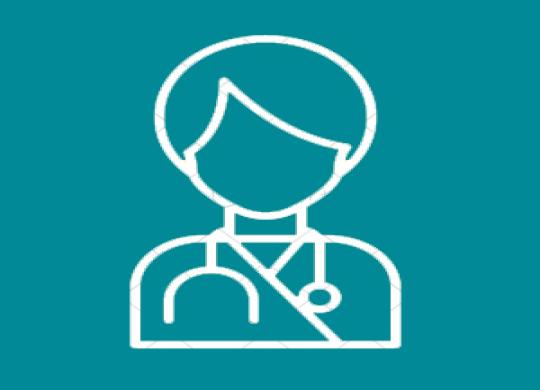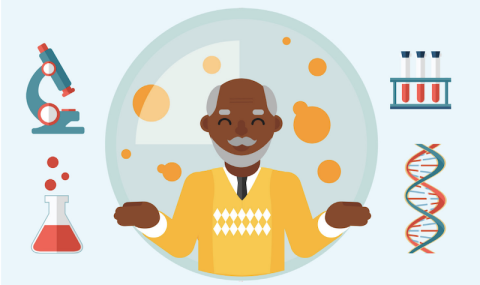About Clinical Trials
Useful information to help you understand scientific research, clinical trials, and how you can take part in advancing the future of medicine.

Explanation of the Research Process
Each research advance builds on past discoveries, often in unexpected ways. This process isn’t always a straight path and can be confusing to some. This infographic explains how scientific research works.
A clinical trial is carefully designed research that involves voluntary human participants to test the safety and effectiveness of treatments such as drugs, medical devices or behavioral interventions used to treat or prevent certain diseases.
A clinical trial aims to:
- Discover new treatments that work better and are less invasive than standard treatments
- Evaluate the best methods to detect and diagnose diseases
- Find ways to prevent diseases through medications, lifestyle interventions or vaccinations
- Identify ways to improve quality of life and care for patients with health conditions
This introduction to clinical research explores different types of studies, the benefits of participating in clinical research, and ways to participate.

Clinical Research is the Study of Health and Illness in People
Research scientists perform different kinds of research depending on the questions they are trying to answer. They may do research to look at causes or symptoms over time, look at behavioral interventions, and/or perform clinical trials to test treatments.
The Phases of a Clinical Trial
Phase I
- Tests for safety and dosage as primary importance to identify side effects
- Involves a small group of people (20–100)
- Can last several months
Phase II
- Continues to test efficacy or effectiveness of treatment and safety
- Involves several hundreds of people (100–300) with the target disease
- Can last several months to two years
Phase III
- Tests for long-term safety, confirm the efficacy and compares treatment to standard therapies
- Involves 300–3,000 patients with the target disease
- Can last up to four years
Phase IV
- Occurs after FDA approves treatment for marketing
- Examines additional long-term safety, side effects, and efficacy of the drug for an extended time
- Can last for years and involves several thousand of patients
DID YOU KNOW?
100% of new prescription drugs go through rigorous testing before they reach your cabinets?
How are Research Participants Protected?
Important Questions to consider
Before participating in a clinical trial, it is important to gather as much information as possible to understand the study, its purpose, and the eligibility requirements to participate. Below are important questions to consider and discuss with your doctor and or family members before making decisions.
- What is the purpose of the study?
- Why do researchers believe the new treatment being tested may be effective?
- What kinds of tests and treatments are involved?
- What are the chances I will receive a placebo or treatment?
- Who will be following up with me in the process?
- What are the possible risks and benefits of the study compared to my current treatment?
- What are the commitments for the study or how might this trial affect my daily life?
- How long is the study?
- How will I know that the treatment is working?
Patient Experience in Clinical Trials for Myasthenia Gravis
Steps You Can Take to Participate in a Research Study
Ask Your Doctor

Consult with your doctor or neurologist to learn about research studies that may be the right fit for you.
Research Online

You can visit www.clinicaltrials.gov, a database maintained by the National Institutes of Health that features research studies conducted around the world.
Review And Discuss

Once you find a research study that may be of interest to you, it is important to discuss it with your doctor and with a close confidant before you make the decision to participate.
Contact Research Study Site

After finding a research study that may be the right fit for you, contact the study team to get started.
What to Expect When Participating in a Clinical Trial
The Patient Experience (in Spanish)
Dr. Rocio Caballero-Gill, an MG patient, discusses her experience participating in a clinical trial. Her journey provided space to reflect, learn about herself, and grow.

Study Volunteers Play a Critical Role in The Process
Clinical research may be right for you if you want to help others, receive regular monitoring, and test new disease treatments.

